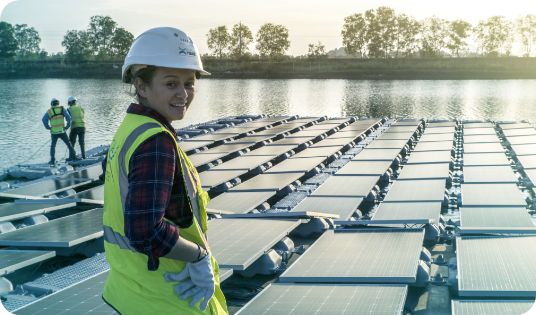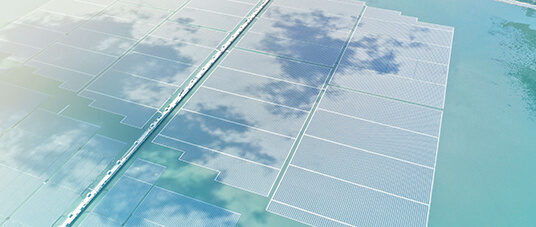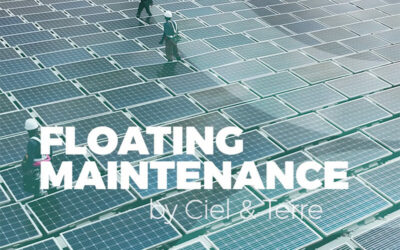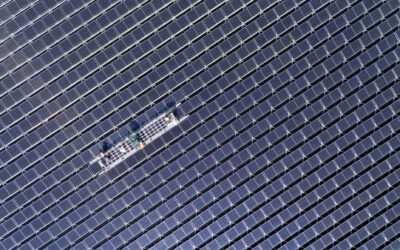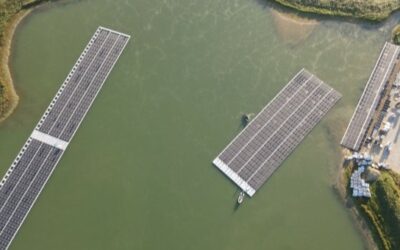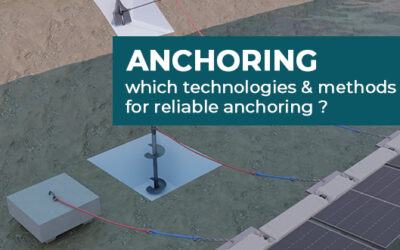Find below why choose floating PV as a green alternative to produce energy. First, the concept of floating PV was born in 2010 based on an observation from our chairman, Bernard Prouvost. Indeed, he understood there are available water surfaces and an expanding need of energy. Following this reflection, we introduced our floating solar system Hydrelio® in 2011 as the first floating solar technology ever.
In 2013, the 1st MW-scale project worldwide was inaugurated with Ciel & Terre’s pioneering technology. Since then we have developed enhanced products and great field experience. As of January 2022, more than 245 ‘floatovoltaic’ projects have been designed by our teams. We installed all the projects with our Hydrelio® technology worldwide. This is equivalent to more than 640 MWp. We have contributed to the increase of the global cumulative capacity installed by the entire industry, which has been multiplied by 700[1] since 2013. In September 2020 this capacity was estimated to 2.1 GWp[2]. It is expected to reach 4.8 GWp by 2026[3].
This great evolution over the years relates to the advantages that the installation of FPV projects provides. Moreover, our position as pioneering and innovative company enables us to speak for those benefits.
Floating solar projects are a great solution when you want to preserve land
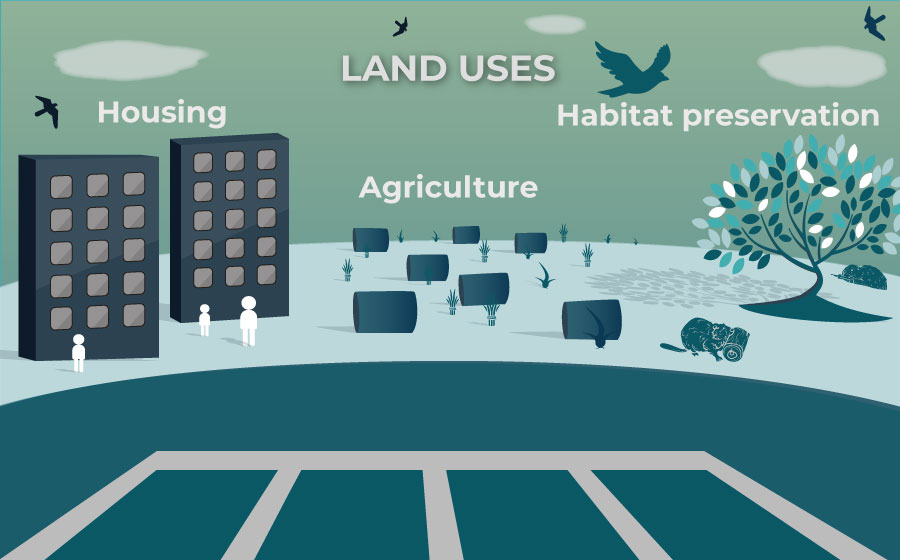
Land serves many purposes, one of which is to house people. With a growing population of aproximately 1% every year since 2005 and until 2025, according to UN estimations[4], the need of housing is still a reality. In this sense, to choose floating PV projects is a relevant solution to help produce renewable energy to communities. Moreover, this type of projects leaves the land available for housing development.
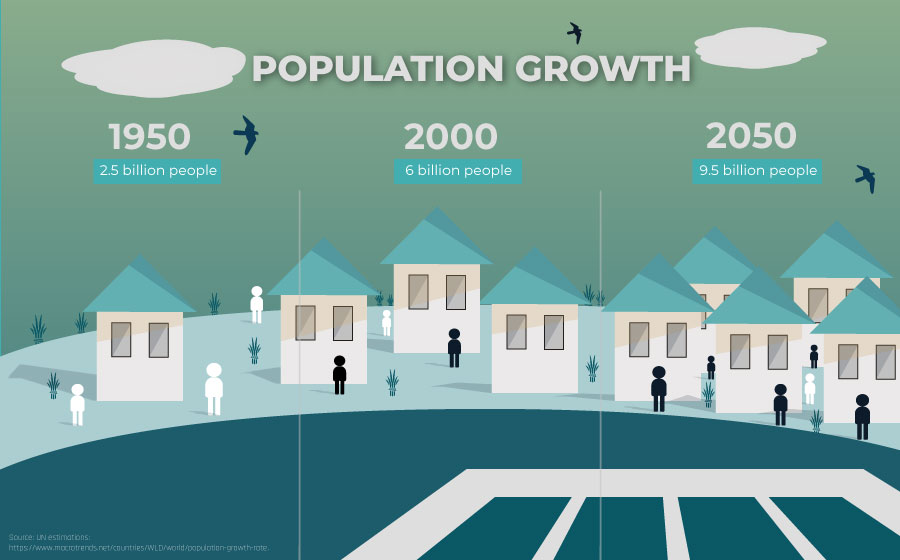
Additional human oriented purposes are agriculture – farming and cultivation. As today the world population counts 7.75 billion [5] people and is likely to reach more than 9.5 billion in 2050, providing and evenly distributing food is getting more complicated. In cooperation with rooftop solar and a worldwide renewed conception of cultivation, to choose floating PV is a good way of preserving landing spaces.
Equally, land needs to be preserved to protect biodiversity. For instance, in some places to preserve natural areas, the soil has to be conserved in specific conditions. Similarly for the habitat of certain species require no landscape modification. By installing floating solar systems to produce renewable energy on artificial water bodies, we answer the concern of preserving natural areas from human activities.
Floating PV projects are a great way to create new or complementary opportunities to produce green energy
FPV projects, like other types of solar facilities, can produce energy with two functions:
- Grid-injection
- Full or partial self-consumption.
A floating PV plant produces electricity in-house, which can help energy-intensive industries support their energy needs (e.g. Raw Water Pond floating solar plant, India – installed on the water storage reservoir of a thermic power plant). Floatovoltaics can also help in the eco-friendly management of the cultivation assets (e.g. Altman Plants floating PV project, USA).
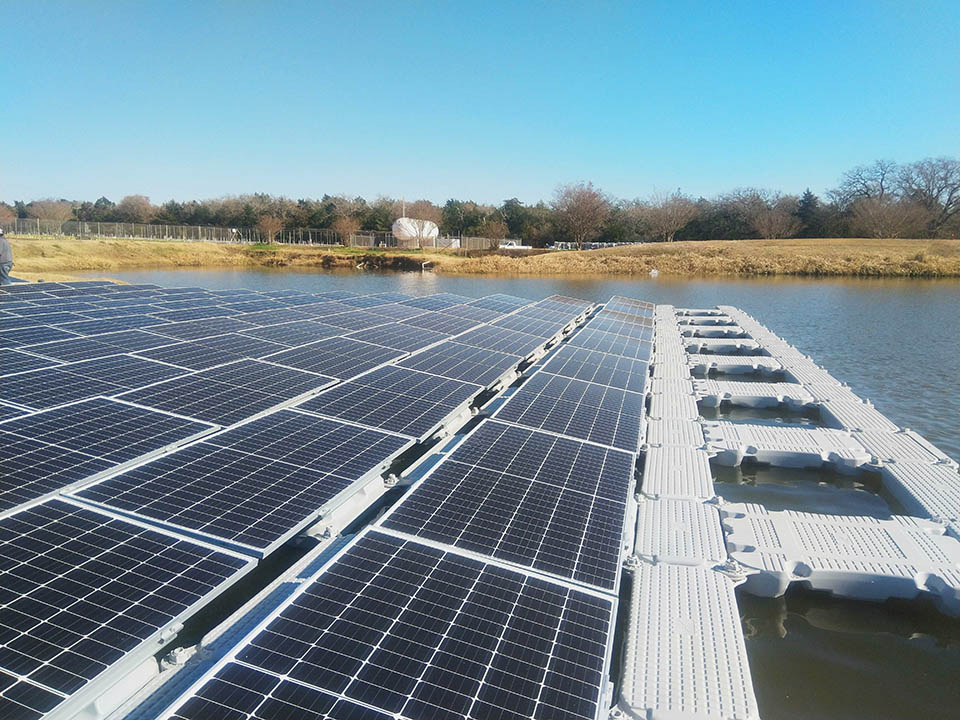
Altman Plants – developed by Speir Innovations
985 kWp
Irrigation pond
The green electricity produced serves the energy required for the management of their activity: it powers their greenhouse operations.
Besides, a floating solar plant produces green energy during its first year that already offsets the carbon footprint generated by manufacturing and transporting raw materials and components. Furthermore, at Ciel et Terre we associate floating solar with proper strategic decisions (local sourcing and manufacturing). Hence this is a durable solution to minimize the related CO2 emissions as showed a one-year study[6] we directed on a floating PV plant in Central Europe.
Floatovoltaics also present some economic benefits
Indeed, a pond welcoming a floating solar project that Ciel & Terre designed with the Hydrelio® technology keeps its initial function. The floating system actually enhances it.
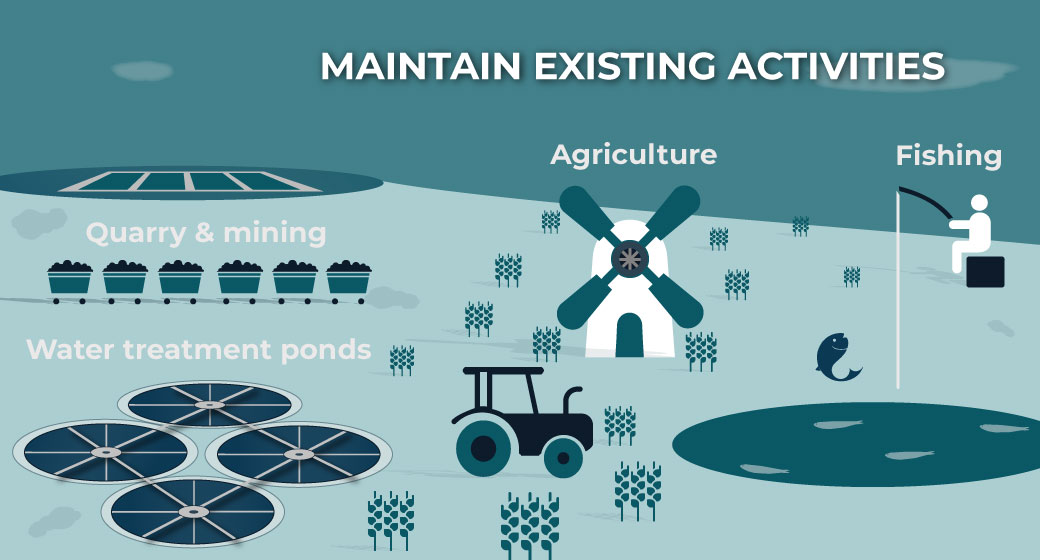
On the one hand, the Hydrelio® FPV projects are compatible with existing activities, like aquaculture, fishing and mining (e.g Maiwald floating PV project, Germany – with a world-premiere parabolic mooring line to fit that purpose).
On the other hand, floating solar installations can rehabilitate disused areas to produce renewable energy (e.g. CECEP floating PV project, China – installed on a former coal mining area).
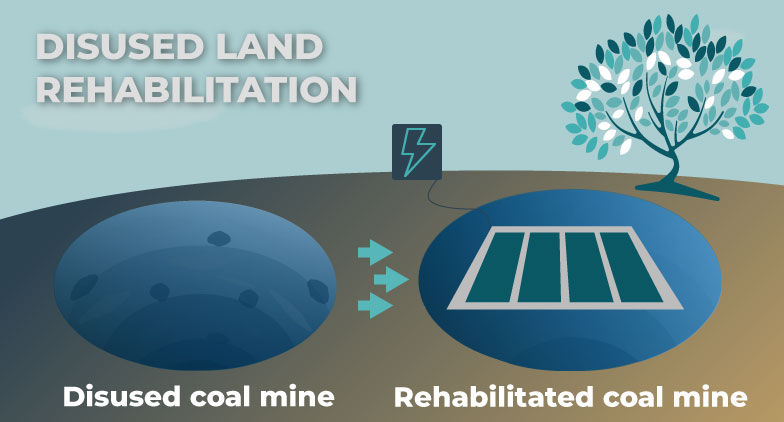
In addition, they can reduce evaporation of water and the erosion of the reservoirs by limiting the action of waves. Floating systems can also restrain invasive algae blooms by covering a part of the lake, subsequently improving the quality of water.
To choose floating PV enables you to make the most of disused ponds
Whatever its purpose may be. Discover more in our next article published next month (February 2022).
For all those reasons, several specialized media consider floating solar ‘the third pillar of the solar industry’. Indeed, to choose floating PV completes the benefits provided by roof and ground mounted systems. and for that purpose It continues to thrive in Asia and boom in Europe and in North America.
You are an EPC or a project developer interested in deploying a floating solar project, discover more about the A to Z offer for you: link.
You are a pond owner and you would be interested in having floating PV installed on your property, contact a project developer.
References:
[1] Solarplaza report 50 Top operational plants 2021
[2] “Where Suns Meets Water”, 2019 report by the World Bank group, ESMAP and SERIS
[3] https://www.pv-magazine.com/2022/01/19/floating-pv-could-reach-4-8-gw-globally-by-2026/
[4] https://www.macrotrends.net/countries/WLD/world/population-growth-rate. More data on: https://data.worldbank.org/indicator/sp.pop.growv
[5] https://www.statista.com/topics/776/population/#dossierKeyfigures
[6] Read the study: https://bit.ly/33SNuNi
